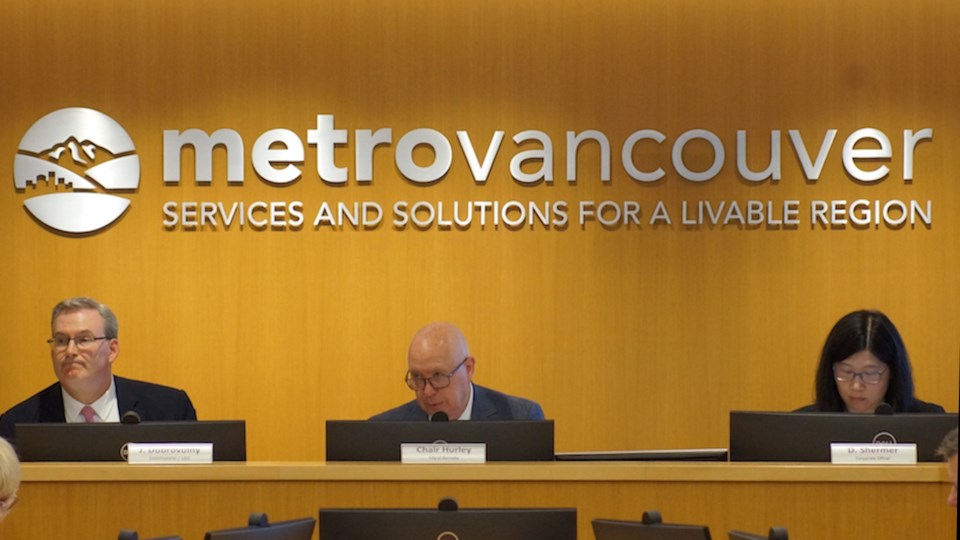Metro Vancouver chair Mike Hurley says the regional government will seek cost savings next month after hiking utility fees and taxes 25.3 per cent next year to an average of $875 per household.
“Metro Vancouver’s services are foundational to quality of life in this region,” said Hurley in a Dec. 5 statement.
“We will continue to meet our responsibility to protect human and environmental health through our various roles — as a regional district, as a water, sewerage, and solid waste utility, and as one of the largest providers of non-market rental housing in B.C. — and we’ll meet it with careful consideration of how we budget and spend.”
On Nov. 29, the Metro Vancouver board directed staff to report back in early 2025 with potential operational cost savings by department, including details of financial and service implications for any potential revisions. This work will be integrated into an early start on the budgeting process, and will create an opportunity for the board to identify cost efficiencies, according to a statement from Metro Vancouver’s public relations team.
The 2026 budget process will begin in January 2025, and the review will help guide core decisions related to the 2026 budget and the next five-year financial plan, the statement noted.
Metro Vancouver has already halted out-of-province travel for staff and board directors.
This year, the average household paid $698 for critical utilities as well as regional government operations. Next year, the same household will pay $875, a 25.3 per cent increase, on average. The bill is added to one's municipal property tax bill.
Much of the increase — $98, or 14 per cent — is to account for the commencement of payments for the nearly $3-billion, over-budget North Shore Wastewater Plant.
The sewage plant project has faced remarkable cost overruns and delays, some only made public earlier this year.
Metro Vancouver is also looking to increase its overall operating tax bill, which accounts for a 9.9 per cent hike for the average household in 2025, on top of the sewage plant costs.
Metro Vancouver’s commissioner and CAO Jerry Dobrovolny received a 15 per cent pay raise in 2023 and cashed in over $200,000 in taxable benefits to push his total remuneration to $711,668.
In 2023, Dobrovolny was paid a base salary of $451,949, up from $393,607 the year prior.
Hurley’s annual salary as chair is $106,879, according to the government’s website.
Metro’s operating expenses are also set to rise sharply in the coming years, climbing to $2.2 billion in 2029 from $1.2 billion in 2024. The largest increase is for the region's sewage services, where expenses are expected to more than double to $1.2 billion by 2029.


